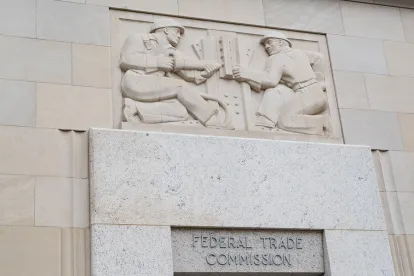On Wednesday, May 8, the Federal Trade Commission hosted a special forum exploring small business lending practices, regulations, and policies. The forum consisted of three panels: (1) Overview of the Small Business Financing Marketplace, (2) Case Study on Merchant Cash Advances, and (3) Consumer Protection Risks and the Path Ahead, along with the opening remarks of FTC Commissioner, Rohit Chopra, and closing remarks from FTC Bureau of Consumer Protection Director, Andrew Smith.
While the forum covered a wide array of topics, several important themes were apparent throughout. The first two panels, which focused on the general small business financing landscape as well as a deeper dive into the small business financing option of merchant cash advances, highlighted the difficulty of using APR as a metric for evaluating the fairness of small business financing. Several panelists, in order to promote “cost of capital” as the relevant data point, emphasized the often acute short term needs of small businesses, the lack of access to more traditional financing, and the high risk involved in small business lending. Panelists also emphasized how several small business financing tools utilize repayment options that are structured exclusively on seasonal (or otherwise sporadic) cash flow models, further complicating the use of an annualized metric like APR in determining the fairness of small business financing.
The panelists universally acknowledged the opportunity existing in the small business finance sector where there is significant need for services, potential for dramatic economic growth, and several practical and regulatory barriers to more traditional financing formats. While some panelists embraced the opportunity inherent in small business financing to revisit the traditional underwriting model and wholly divorce the process from an individual’s personal credit worthiness (which is often negatively impacted by entry into the entrepreneurial realm), others noted that the profitability margins available in shorter term loans make small business financing particularly ripe for abuse by unscrupulous players and in need of regulatory clarity.
One of the more contentious issues discussed by the second and third panels was the continued inclusion of confessions of judgment in small business financing instruments, particularly in merchant cash advances. While some panelists encouraged the abolishment of confessions of judgment entirely, others sought to continue their use in limited circumstances, such as where the loan amount (and accompanying risk) is particular high or where there is evidence of fraud on the part of the borrower. All noted that a complicating factor was the state-by-state variations in the procedure and enforcement of confessions of judgment.
Addressing potential policy concerns moving forward, the panelists strongly encouraged greater transparency in the small business financing process. In particular, the final panel suggested that the FTC explore the value of national minimum disclosure requirements for small business lenders that include elements such as APR, cost of capital, return on investment, and average monthly payment. Lenders represented on the various panels also expressed frustration with the uncertainty of whether they must comply with state consumer finance protections which increasingly have been extended to small business financing but generally do not apply at the federal level.
In his opening remarks, Commissioner Chopra noted “[t]he FTC is the sole federal regulator and enforcer in the non-bank small business financing marketplace.” As such, it seems any forthcoming rules and enforcement actions will largely emanate from the FTC, though lenders would be wise to continue to monitor the regulatory landscape broadly when looking to enter into or operating in the small business financing space.



 />i
/>i

